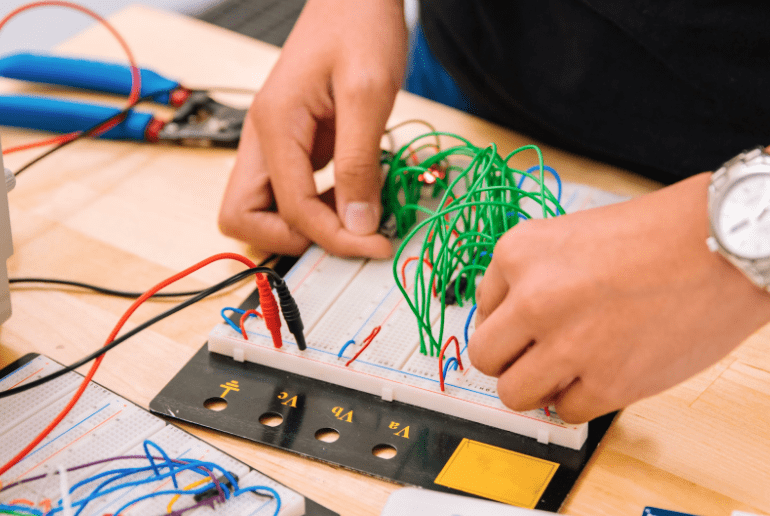
Change is the new constant in the ever-evolving world, impacting every aspect of life, from communication, transportation and the way of life. In education, changes can be witnessed from every aspect, including teaching. With technological changes, policymakers have realized that the teaching landscape must be adjusted to enable students to handle tomorrow’s challenges. Policymakers emphasize practical skills and awareness that teachers must have to succeed in a classroom.
Training institutions must meet educators where they are in their lives and career journeys and ensure they stay updated on the latest requirements. Teachers of tomorrow must learn how to navigate these changes to ensure professional success.
We examine how teachers can steer through the changes experienced in teachers’ certification and also shed light on what they can do to become better educators.
Traditional Teacher Certification
The conventional way to become a teacher involves finishing a four-year bachelor’s degree in education at the university. During this period, aspiring teachers learn specific subjects, topics, and areas, such as pedagogy relevant to the teaching profession. To gain hands-on experience, the teacher candidates are placed in a long-year clinical setting in the classroom with supervision from certified educators.
Before certification, aspiring educators must work with students through multiple programs involving fieldwork, internships, and residencies. Once this is done, the college or university will determine whether the aspiring teachers are ready to become teachers and then grant them certification.
Alternative Teacher Certification
The alternative route for acquiring a teacher certification only requires a bachelor’s degree in any field. Aspiring teachers can then receive the certificate after completing the program successfully. They don’t even need any classroom experience.

Future teachers can explore alternative certification insights by Teachers of Tomorrow and know what steps to take to fulfill their dreams. Research has shown that despite no significant changes in teacher efficacy and job satisfaction levels, those with alternative certifications perform better than traditionally certified educators.
The need for an alternative teacher pathway arose due to changes in the world economy and declining performance in mathematics and science subjects across various high schools in the US.
As the country tried to reform education to solve this issue, the No Child Left Behind Act (NCLB) was created. One of the critical issues in the NCLB was that teacher candidates must be highly qualified before receiving certification, especially if they are teaching core subjects like mathematics, languages, and sciences.
However, these issues, coupled with teacher shortages experienced across poverty-stricken areas, led to the creation of alternative teacher training programs. These alternative pathways to teaching have fewer up-front requirements. They have been essential to solving teacher shortages and improving performance, particularly in severely understaffed schools.
How Teachers of Tomorrow Can Adapt to Changes and Become Better Educators
Policymakers agree that teachers must fully embrace the change in students’ needs in the modern world. Additionally, they agree that they must raise teaching standards to improve learner outcomes and help them solve tomorrow’s challenges. The following are some ways teachers can adapt to teacher certification change.
Do More for Learners
Legislators agree that teachers must do more than present information to their learners. For learning to be effective, educators must do the following to come up with a curriculum for diverse classrooms:
- Think pedagogically.
- Solve ethical dilemmas.
- Investigate an issue.
- Analyze student learning ability.
The implication is that there needs to be a systematic and sustained effort to ensure aspiring teachers have the required classroom management and instruction planning skills before completing their teacher certification program.
Deep Understanding of How Students Learn
Teachers must deeply understand how students consume and process information for effective learning. Policymakers acknowledge that changes need to be made in teacher training programs to ensure that educators understand how students learn.
Research has shown that students learn best when teachers present organized, categorized, and connected information. For this reason, the curriculum must be adjusted to include a framework that focuses on how to help students see the bigger picture — put ideas and theories into practice.

Beginning Clinical Practice Early on in the Program
Legislators agree that in the same way, learners must put theory into practice, teachers must be able to do the same. For this reason, they proposed that teachers undergo clinical experiences right from the beginning until they get their certification.
Additionally, teachers of tomorrow should take advantage of technology and technology-integrated classes. They can utilize online coursework and virtual classrooms to learn and teach their students. Also, resources such as online course management systems can help manage online and onsite learners.
Networking and Connecting with Other Educators
Research shows that teachers’ interaction and collaboration are essential to improving classroom performance. It doesn’t only lead to growth and innovation but also to overcoming challenges. Teachers of tomorrow should actively participate in collaborative areas, share ideas, and stay updated on the current curriculum development.

Embracing a Growth Mindset
To foster positive student outcomes, teachers must embrace a growth mindset. According to Stanford psychologist Carol Dweck, Ph.D., teachers with a fixed mindset believe their abilities are unchangeable. On the other hand, Dr. Dweck also believes that those with a growth mindset believe their abilities have room for improvement through hard work and dedication.
Teachers with a growth mindset will strive to improve themselves professionally. They will embrace failure as an opportunity to learn. Such teachers are also likely to keep up with the latest classroom-based research in education. Additionally, such teachers are more likely to encourage students to have a growth mindset, which can improve classroom performance.
Conclusion
Teachers are the backbone of the education system. However, teacher certification is constantly evolving, presenting both challenges and opportunities. Teachers of tomorrow must demonstrate a deep understanding of the changes happening to ensure they lead their students to success.
By embracing the changes, doing more for learners, fostering a growth mindset, and exploring the different pathways to certification, teachers can equip themselves with everything needed for success.



